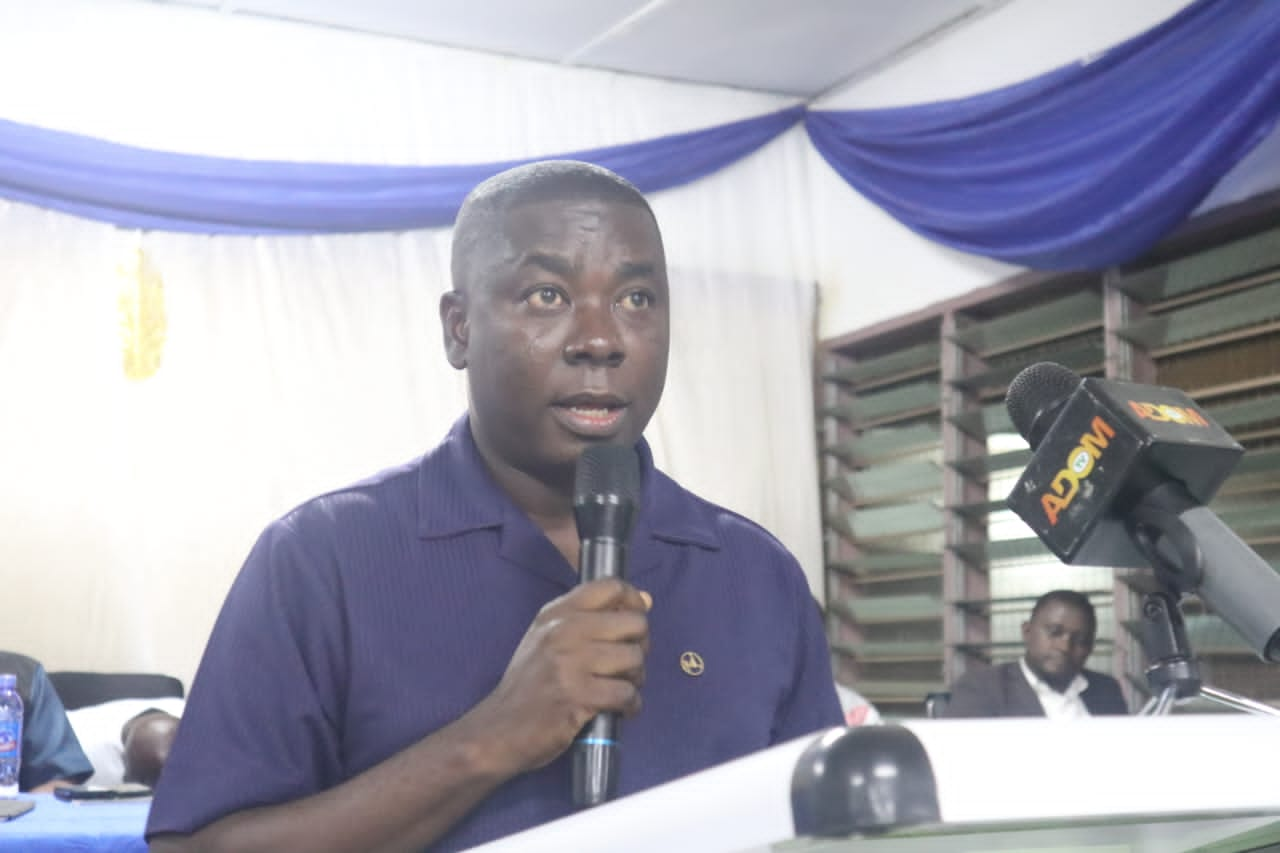
COVID-19 exposed systematic weaknesses in Ghana’s economic architecture - Dr Gideon Boako
Dr. Gideon Boako, the Economic Adviser and Spokesperson to the Vice President has said the COVID-19 pandemic exposed some of the systematic weaknesses of the Ghanaian economic architecture.
That, according to him, “taught us the need to build an economy that can withstand external shock.”
Dr. Boako was speaking at the GRASSAG Week Celebration at the University of Energy and Natural Resources on Thursday (September 8, 2022), in Sunyani on the theme: "The Role of Postgraduate Students in Government’s Economic Recovery Program Post Covid-19."
“…Our continued reliance on imported goods for consumptions is not sustainable in the long term; the slow pace of our movement to mechanised agriculture presents huge challenges; the inability of the informal sector to formalise its business activities to mention a few, are all significant gaps that need to be addressed as a matter of urgency,” he said.
He said the country’s ability to respond to the aforementioned challenges will go a long way in helping build vibrant economy capable of withstanding external shocks such as COVID-19.
Appreciating the catastrophic effects of pandemics such as COVID-19 on growing and developing economies such as Ghana’s, Dr. Boako said: “It is very evident that a time such as this requires innovation, creativity, entrepreneurship and a rekindling of the Ghanaian spirit of perseverance and a general belief in the can-do spirit of the youth. We need the can-do spirit and the ingenuity of the youth to rise up to the occasion.”
Time to industrialise
Moving forward, Dr. Boako said the bedrock of a strong local economy is industrialisation and that the evidence shows that industrialised countries have higher GDPs as against non-industrial economies. Industrialisation, he argued enhances the employment outcomes for the youth whilst contributing significantly to the GDP of the country through consumption and exports. Again, he noted that in times of external shocks, locally produced goods provide the buffer to sustain national economies, adding value to local supply chains and also improving local revenues.
“During the pandemic, we are all aware how Personal Protective Equipments (PPEs) became necessities for survival. We also witnessed how it took local industries a while to respond to demands for these essentials. This affirms the need to expedite our efforts to build local industries responding to the local needs of its citizens,” he stated.
Post COVID-19 era requires immense creativity
Describing the graduates as critical to the country’s economic recovery, Dr. Boako said the post-COVID-19 era requires immense creativity.
“Postgraduate students are trained to be innovative. You are expected to come up with ideas turned into research to advance the course of humanity and the country's socio-economic transformation. The experience of COVID-19 has taught us to be innovative in creating our own spaces within the broader economy,” he stated.
